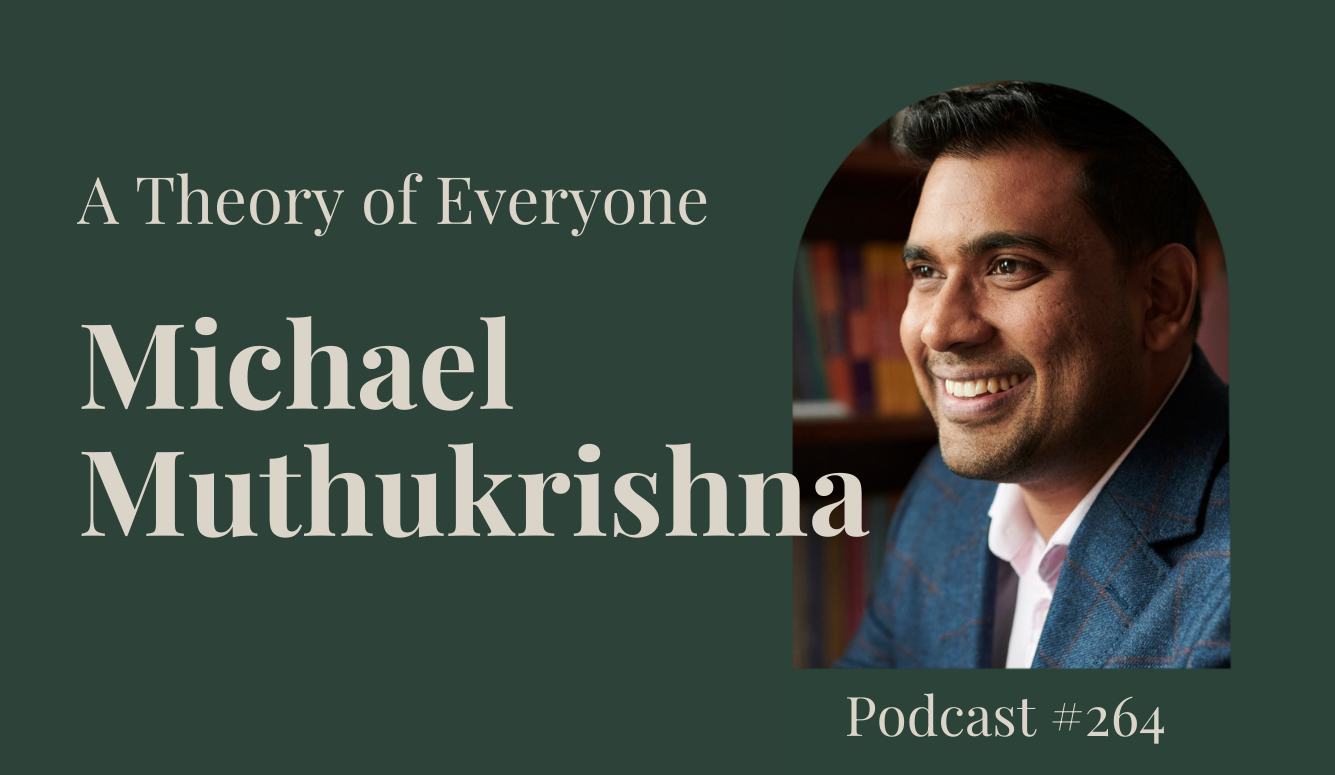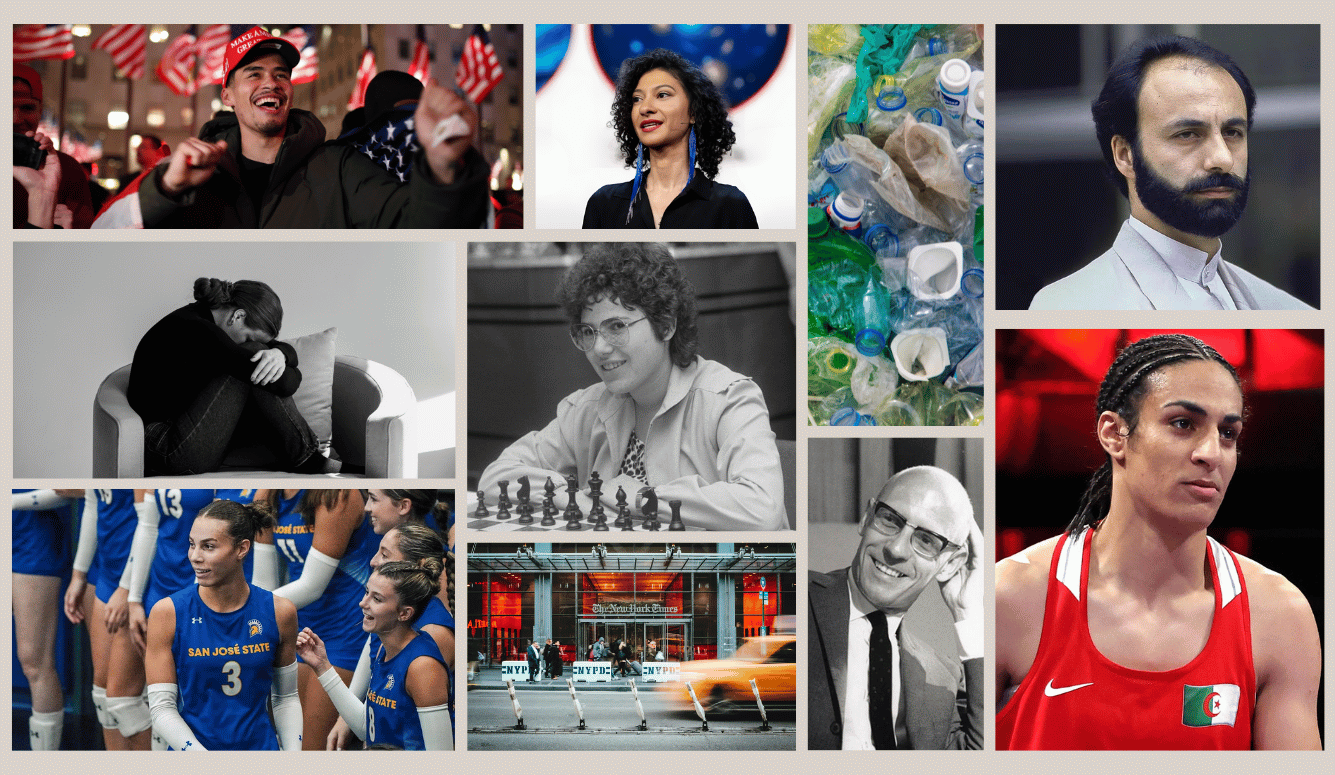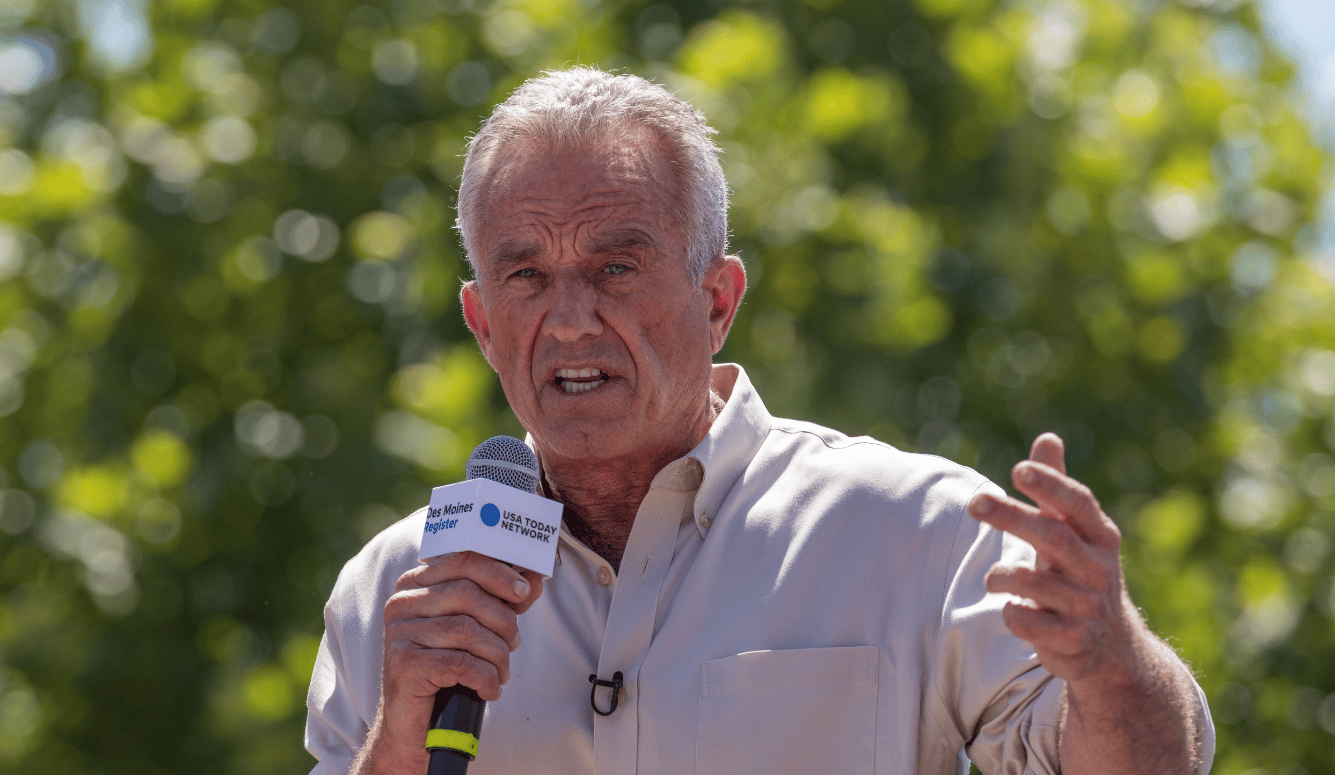Bad Faith: Sam Harris, Omer Aziz, and Islam
The removal of Saddam Hussein’s dictatorship, he argued, would be a deliverance, and the nobility of the project to help build a democracy in its place ought to be self-evident.
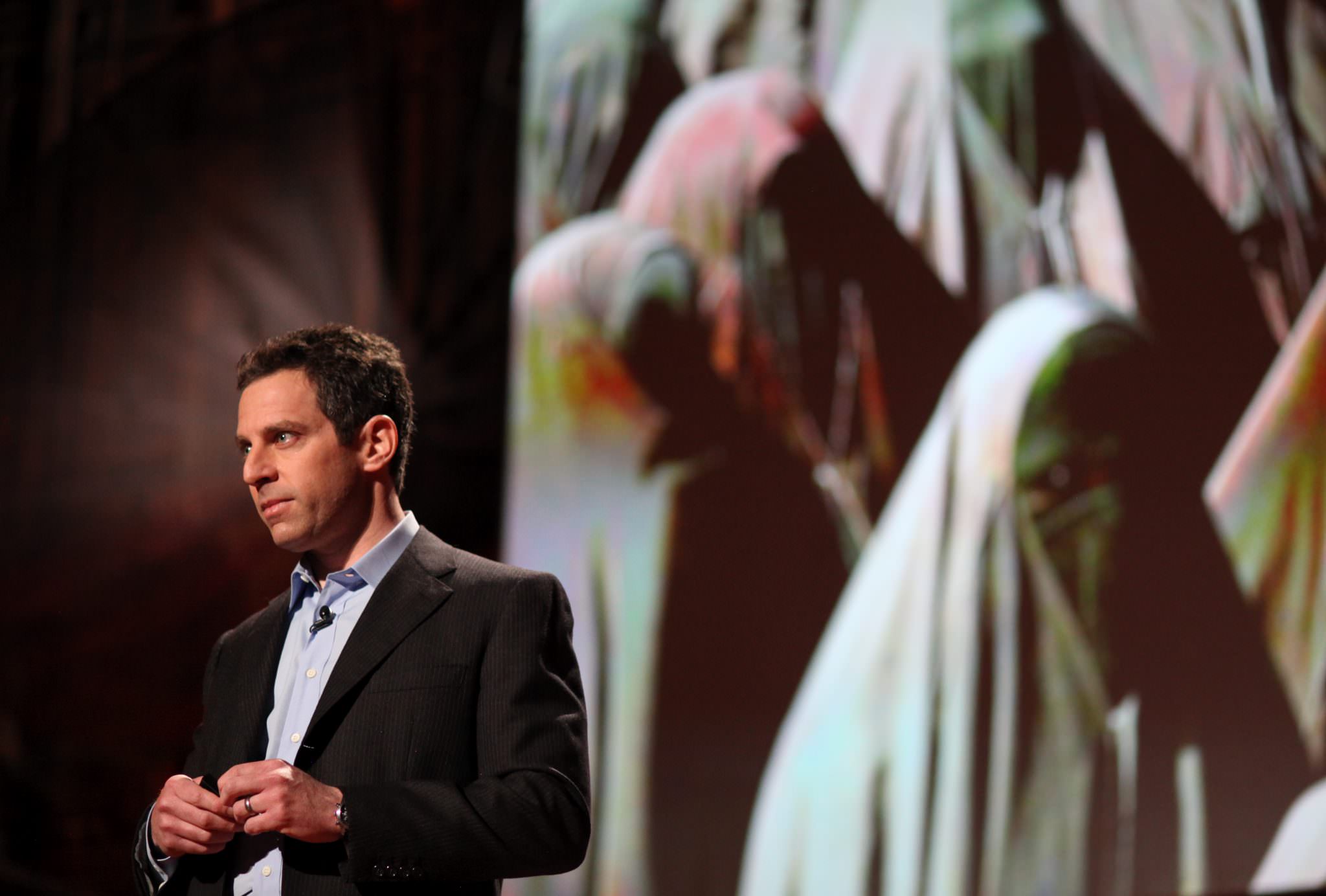
In a recent post covering a discussion between Ayaan Hirsi Ali and Maajid Nawaz at the JW3 in London, I wrote the following regarding their critics:
"Allegations — often nothing more than insinuations — have been made that Hirsi Ali and Nawaz have lied about who they are, that they don’t mean what they say, and that they are either greedy and self-serving or greedy and self-hating or both. A paradigmatic example of what the late Christopher Hitchens called “the pseudo-Left new style, whereby if your opponent thought he had identified your lowest possible motive, he was quite certain that he had isolated the only real one.”"
Hitchens offered this remark, not just as a matter of observation, but from personal experience. He had set out the moral arguments in favor of the removal of Saddam Hussein at abundant length and with a rare passion and clarity. Salient to his advocacy was the Iraqi regime’s mass-murder of Kurds and Marsh Arabs, and the torments suffered by Iraqis more generally at the hands of a despotism of uncommon paranoia and cruelty. The removal of Saddam Hussein’s dictatorship, he argued, would be a deliverance, and the nobility of the project to help build a democracy in its place ought to be self-evident.
But when his erstwhile colleagues on the political Left asked themselves what might lead a former Marxist, anti-Imperialist, and friend and admirer of Edward Said to support a Republican administration’s wars, they preferred to ignore the case he actually made and defended. Instead, they ascribed to him the most sinister and ignoble motives they could come up with. Hitchens, they claimed, was in fact driven by a desire for the personal enrichment that came with Establishment approval, by racism, by “bloodlust”, by a newfound worship of American power or, more often than not, by a combination of all the above. There was a general eagerness to convict him of treachery and greed and to explain that what really animated him was, at best, a wicked indifference to seeing lifeless Muslim bodies drawn from rubble.
The only time I have ever seen Hitchens caught off-guard by a question was towards the end of his debate with the former Labour Party parliamentarian George Galloway. The question pertained to Hitchens’s integrity but it came, not from Galloway himself, but from the debate’s moderator, Amy Goodman. “As you’ve changed your views over time,” she asked, “do you feel that the media is friendlier to you?” An uncomfortable pause followed, broken by a smattering of audience snickering and applause. “Um….” Hitchens started uncertainly, “I’m just…trying to…think…” Galloway took the opportunity to contribute a derisive laugh of his own. “No…” Hitchens continued:
"I have…I have…I was a columnist for…say, Vanity Fair which is where I think most of my readers follow my stuff, uh, before I, erm, resigned from the Nation, for example. And I still…I didn’t get that job by quitting the Nation. I have a feeling I know the, uh, imputation of what you’re saying. But I think I probably wouldn’t be the best judge in my own cause. I can see the editor of the Nation magazine sitting in the front row. I feel fairly confident that if you asked him he would not say that I left the Nation in order to improve my salary prospects. And I frankly think that’s a bit of a waste of a question. But if the impression I give is of someone mercenary and as bad at handling money as that it’s an impression I wouldn’t be able to correct by denying it."
Well, quite. “That’s a bit of a waste of an answer,” Galloway interjected with obvious satisfaction. But what other answer could Hitchens have provided under the circumstances? He immediately understood that whatever he said was likely to sound self-serving and possibly self-righteous, and that he was only going to be able to sidestep that trap by declining to offer a robust answer in his own defense.
* * *
A few weeks ago, Sam Harris invited a writer and law student named Omer Aziz onto his podcast to discuss the latter’s scathing review of Harris’s recent book, a collaboration with former Islamist Maajid Nawaz entitled Islam and the Future of Tolerance. Aziz began by protesting, “I don’t care about your motives. For me, it’s about what the book says”. If that were true, listeners would have been spared the podcast’s tortuous first hour, and what followed it might have been more constructive.

But it is hard to accept Aziz’s professed indifference to Nawaz and Harris’s motives when he had decided to open his review with this:
"There are few get-rich-quick schemes left in modern publishing, but one that persists could be called Project Islamic Reformation. Writing a book that fits in this category is actually quite easy. First, label yourself a reformist. Never mind the congratulatory self-coronation the tag implies; it is necessary to segregate oneself from all the non-reformists out there. Second, make your agenda clear at the outset by criticizing what is ailing Islam and Muslims. The Qur’an is a good place to start because Muslims, especially in the Middle East, surely treat their holy book more like a military instruction manual than anything else. Third, propose a few solutions. Lest you be accused of nuance, the more vague and generic these are, the better. Fourth, soak up the inevitable publicity that awaits, and with it, your hard-earned cash. Voilà!"
Aziz not only ascribes explicitly avaricious and self-aggrandizing motives to Harris and Nawaz, but he front-loads his review with an entire paragraph devoted to this accusation, for which he appears to have no persuasive evidence outside of his own suspicions.
Harris seemed to be under the impression that this could be dealt with fairly quickly. Unlike Hitchens, he had come pre-prepared with what he thought was an unanswerable rebuttal. Aziz was, after all, claiming that the authors’ cynical and true intentions contradicted their stated goals. Absent anything actually substantiating their duplicity, how could he possibly know this?
Harris pointed out — inter alia — that slim volumes published by Harvard University Press were hardly a lucrative way to make a living; that most of what Harris described as his core audience had limited interest in the topic of radical Islam; that the reputational and security costs associated with writing critically about Islam were enough to dissuade others interested in the topic from touching it; and he pointed out that he and Nawaz had been offered no advance on the book and that he had no idea how well it was selling.
Aziz was having none of this. If Harris and Nawaz had wanted their motives to remain untainted by suspicions of self-enrichment, he declared, then they ought to have made it available for nothing. He demanded to know how much money Harris had made from the book (something he really should have taken the trouble to discover before accusing Harris of being motivated by nothing else). Wearily Harris agreed that, yes, they will have made some money from sales although he didn’t know how much and, in any case, that really wasn’t the point. That led to this exchange:
"AZIZ: You have just admitted you made money out of this, number one. Number two, it was originally supposed to be a blogpost. And number three…would you deny that Project Islamic Reformation books demanding reformation are not in vogue now? That articles calling for reformation don’t go viral every two days? Would you deny this? That there is a great market and a great readership and a great listenership for these kinds of ideas?
HARRIS: Yes. I would deny it. It is the least lucrative and most costly thing I could be doing. And I’m informing you about this. I don’t expect you to know this. But what I’m saying is true. And your reluctance to step back at all from your “get-rich-quick scheme” claim says a lot about you. You’re getting your JD at Yale. What could you possibly hope to do as a lawyer if you’re showing this little concern, not only for the truth, but for the perception of your commitment to the truth?
AZIZ: My commitment to the truth is completely independent from and I think should not factor in financial profit of any kind. I think it’s a corrupting motive, number one and number two…
HARRIS: Jesus Christ. Omer—
AZIZ: …as an attorney, someone who is actually interested in reforming many communities and inducing cultural liberalism, I want to work with these communities, which is apparently what Maajid wants to do, and here-here-here’s something: I’ll tell you, this book is going to influence and change precisely very few opinions in the Muslim world.
HARRIS: Again, you’re changing the subject, Omer. The truth I’m talking about here is that you made a claim about our motives that is demonstrably false. I’ve given you several reasons why you should recognize—
AZIZ: You just admitted you made money off of it!"
Presumably Aziz is paid for the articles he has published in Salon, The New Republic, the New York Times and elsewhere. Is it therefore legitimate to conclude that his only interest as a writer is in filling his own pockets? Will his work as a lawyer be undertaken pro bono to preserve the integrity and nobility of motives that would otherwise necessarily be suspect? His review then went on to ascribe the same mercenary motives to Ayaan Hirsi Ali on the basis that “publishers love a good Reformist”, but again without troubling to actually substantiate his claim.
Amidst the general atmosphere of exasperation the conversation produced, the most important question got lost which was why? Why had Aziz found it necessary to get into the matter of motives at all, especially since he claimed that what really concerned him was the substance of the book itself? What, in other words, were his motives for deciding to open his review with such a gratuitously ungenerous and mean-spirited paragraph, which then echoed across every substantive criticism that followed?
Aziz was quick to insist that he held no personal animus towards either Harris or Nawaz. “I don’t hate you and I don’t hate Maajid,” he announced. “I find some of your ideas repugnant and I was responding to those. I didn’t call you a racist. I didn’t call you a bigot at all. I didn’t call you any names. I merely contending and responding to the ideas that I read in your book. So that was my intention at least.”
But this is also hard to reconcile with the experience of actually reading what Aziz had written. Contempt and bitter resentment roll out of his review in waves, and there is a point beyond which strident criticism simply lapses into invective. He had claimed that Harris is historically illiterate, ignorant, morally callous, an undisciplined pseudo-intellectual, that anti-Muslim bigotry is unworthy of his sympathies or concern, and that he and Ayaan Hirsi Ali are “considered prejudiced, dishonest interlocutors at best”.
As for the specific accusation of racism, what are we supposed to infer from the claim that Harris is indifferent to Muslim suffering? In an article published following their exchange on the podcast, Aziz was more explicit. During a section expressing outrage that Harris should use the euphemism “collateral damage” to distinguish between the intended (Ba’athist and jihadist) and unintended (civilian) casualties of coalition violence during the Iraq war, Aziz wrote:
"Harris repeats [this euphemism] quicker than even the most hawkish conservatives do. He does so, I believe, because the Muslim-looking or brown-skinned body is of no human value to him…he dehumanized thousands of victims and sanitized the victimizers."
Does Aziz realise what an inflammatory accusation this is to make on the basis of a mere belief? A belief justified by the alacrity with which someone is perceived to use a perfectly legitimate term, no less? Asked by Harris whether or not he thinks Saddam Hussein ought to have been left in power in 2003, Aziz replied that he would have preferred it if the Americans had removed him in 1991 (an evasion of the actual question, characteristic of Aziz’s debating style). Any action taken to remove Saddam Hussein in 1991 would almost certainly have had to be undertaken without UN authorisation. And it would certainly have resulted in Iraqi civilian casualties.
Would it be fair to conclude from this that the Muslim-looking or brown-skinned body is of no human value to Aziz either? To support any war, no matter how just its objective is to accept the inevitability of unintended civilian deaths. It is neither “sanitising victimisers” (the US military) nor “dehumanising victims” to make a distinction between intended and unintended deaths. As Harris tried to explain (again, without noticeable success), this distinction is central to a discussion of an army’s ethics. If, on the other hand, Aziz’s only objection was to the commonplace euphemism Harris used to describe the latter, he could simply suggested a more palatable alternative for the purposes of discussion.
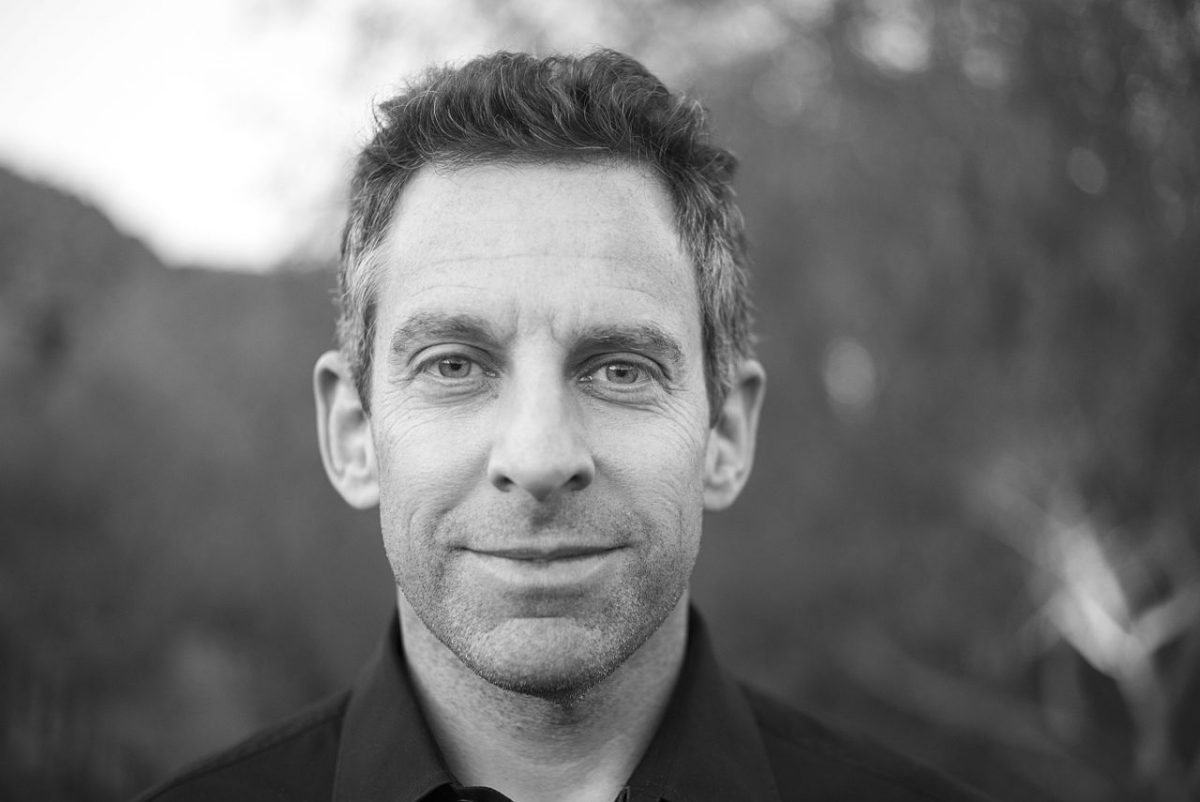
Most puzzling of all is that, for all the derision Aziz empties over Sam Harris and Maajid Nawaz, his own preferred solutions to the manifest problems facing the Muslim-majority world do not seem to be all that different from theirs. He wants to see Muslim democrats and progressives and minorities supported; he wants to see backward and intolerant and illiberal attitudes discredited and superseded by pluralistic and liberal alternatives; and he wants to encourage a process of scholarly reinterpretation of Islamic texts that places the problematic passages in their proper historical context and that uses the more benign passages to discredit the theological arguments of fanatics.
Harris was mystified. But then why the hostility to Maajid Nawaz, he asked, who is making these same arguments and who, as an activist, seeks precisely the kind of theological, cultural, and political reforms Aziz prescribes? “Perceptions,” Aziz replied, “are very important. Historically, left-wingers and progressives and reformists who were bank-rolled by or associated with right-wingers, or what we would today call neoconservatives, have basically been co-opted.”
And here we find, if not the nub of the problem, then at least a big part of it. Omer Aziz self-identifies on the political Left. He gives every impression throughout his review, his discussion with Harris, and his subsequent articles, of presuming that the Left is synonymous with progress, democracy, and virtue and that those on the Right have neither a legitimate moral basis for their own views, nor anything to contribute to a discussion about Islam that cannot be safely identified as bigoted in some way.
It should not be necessary to point out that, as a matter of historical record, the political Left is just as steeped in totalitarianism, terror, death squads, and mass murder as the political Right. During the Cold War, Western governments made accommodations with a series of right-wing dictatorships and excused their depredations in the name of containing Communism. But the New Left were no less willing to ignore and justify the grotesque human rights records of the various Marxist insurgencies and revolutionary regimes – from Latin America to South-East Asia – to whom they offered their allegiance. And since 9/11, vast portions of the Western Left have disgraced themselves by their failure to acknowledge the threats posed to security and social cohesion by radical and fundamentalist Islam, and a craven willingness to align with Islamists in opposition to American foreign policy.
Entangled in an obscurantist web of moral relativity, postcolonial theory, identity politics, anti-Zionism, and general moral confusion, they have instead elected to attack anyone who seeks to criticize members of protected minority groups. When apostates and dissidents from the Muslim-majority world find themselves repeatedly denigrated by people whose idea of progressive politics is endorsing Israeli Apartheid Week and World Hijab Day, it ought to be no surprise to find that they accept instead the solidarity offered by those on the Right who defend liberal democracy without apology. As I am sure Aziz knows, Hirsi Ali’s political journey from Left to Right occurred for precisely this reason.
I wonder also if Aziz realizes that his own brief paean to these values, during which he speaks of encouraging a “liberal and democratic and constitutional revolution across the Middle East” and supporting the “progressive opposition” and ending Western support for “domestic and religious tyrants” in the Muslim-majority world and beyond, would be heartily endorsed by neoconservatives who share in his analysis.
The Obama administration, on the other hand, explicitly turned its back on the democracy promotion agenda of the Bush years. It closed down the democracy directorate at the NSC and weakened the Human Rights Bureau in the State Department. It said nothing as Green movement protestors were murdered on Iranian streets in 2009, following the stolen election. It has been neoconservatives and liberal interventionists — those frequently derided by the Left as ‘right-wing militarists’ — who have been pleading for a No Fly Zone in Syria to help mitigate the slaughter there, and for America to show support for Iranian democrats.
Whether Obama or his neoconservative critics got these judgment calls right ought to be something about which reasonable people of goodwill are able to disagree. Given the region’s volatility and complexity, the foreign policy dilemmas faced by the West are not remotely straightforward. But a constructive debate can only begin once the good faith of one’s opponents has been acknowledged. As the American foreign policy analyst Aaron David Miller is fond of pointing out, the most important divide in politics is not between Left and Right but between good ideas and dumb ones. And there are enough dumb ideas to be found across the political spectrum to preclude an assumption by either Left or Right that they have a monopoly on wisdom or virtue.
Contrary to Aziz’s claim that all he really cares about is ideas, what seemed to preoccupy him during the debate was political positioning. One of the criticisms he had made of Maajid Nawaz in his review was that Nawaz had not gone out of his way to antagonize Harris, and had thereby allowed himself to be tainted by association. In his determination to avoid making the same mistake, Aziz was always careful to position himself in stubborn opposition to Harris. If perceptions are important to Aziz, then the perceptions of the Salon-reading Left seem to be of particular concern.
Aziz is smart enough to realize that had he been foolish enough to engage in an agreeable and fair-minded discussion with Harris, he would have been subject to precisely the kind of reputational cost Harris had described at the start of their exchange. A cost that would have been extracted by the same people who had gleefully circulated his review, and that he was in no mood to pay. So instead he labored to put as much political distance between himself and Harris as possible, apparently untroubled by the intellectually dishonesty this required. He sought disagreement and conflict for their own sake to ensure that he would remain untouched by the same accusations of chauvinism, racism, and bigotry that he has helped attach to Harris. Listening to someone maneuver in this way for over three hours was, in its own way, illuminating. It was also profoundly dispiriting.




